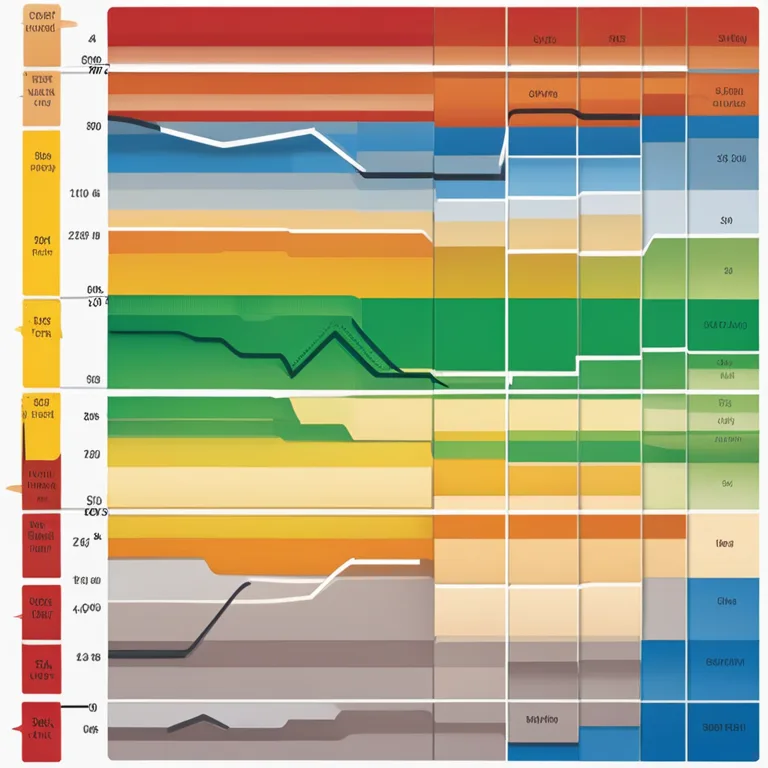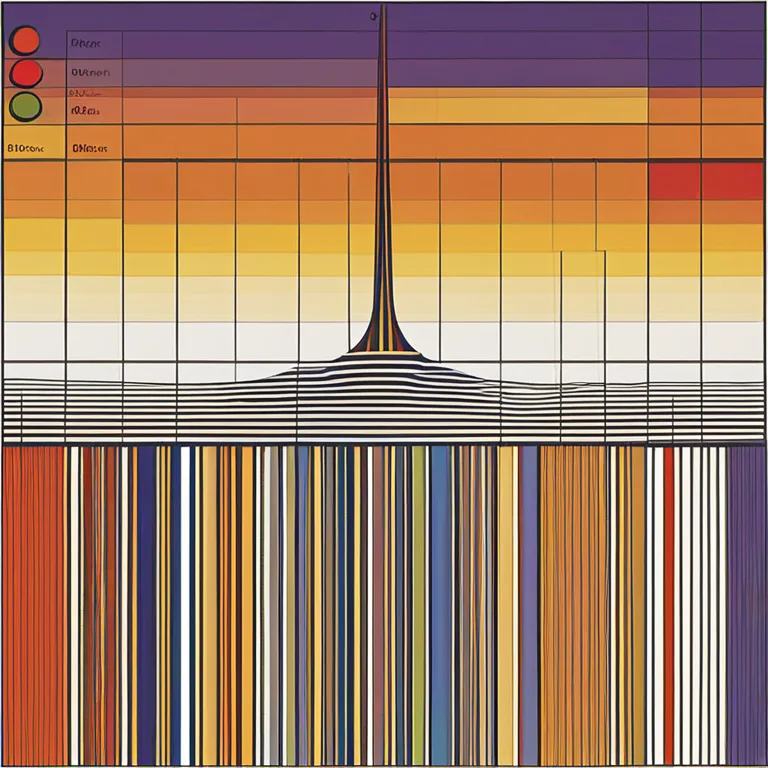
Biorhythm Basics: Patterns of Life's Vital Rhythms
Explore the intriguing concept of biorhythms and how they exemplify distinct cycles impacting physical, emotional, and intellectual states.
article by Adrian Wallace
Introduction to Biorhythms
Biorhythms are believed to be the natural cycles that govern human physiology and behavior. Originating from the Greek words 'bios' (life) and 'rhythmos' (regularly recurring movement or pattern), biorhythms are intrinsic patterns that supposedly influence our physical, emotional, and intellectual capabilities. The concept, although not scientifically proven, is popular among enthusiasts who use it for insights into personal well-being and decision-making. In essence, biorhythms are a holistic attempt to predict various aspects of a person's life through rhythmic cycles.

Physical Biorhythm
The physical biorhythm operates on a 23-day cycle and is indicative of one's strength, endurance, and overall vitality. For example, when the physical cycle is at a high, individuals might feel at their peak physical condition, ideal for demanding activities and productivity. Conversely, during a low physical cycle, energy levels may be depleted, suggesting it is a time for rest and recuperation. Understanding this cycle's flow can help in scheduling activities that require physical effort or in determining the best times for relaxation and recovery.

Emotional Biorhythm
The emotional biorhythm charts a 28-day cycle closely mirroring the lunar month. It influences our moods, feelings, and emotional state. At the emotional high, individuals feel positive, sociable, and emotionally resilient, while an emotional low might correspond with feelings of sadness or heightened sensitivity. Awareness of this cycle aims to help individuals navigate social interactions and personal relationships, pinpointing days where emotional strength is prime and those that might call for emotional caution.

Intellectual Biorhythm
The intellectual biorhythm spans a 33-day cycle and is thought to impact mental agility, analytical processing, and memory. During the peak of this cycle, cognitive functions are believed to be heightened, making it an opportune time for intellectual pursuits, learning new skills, or problem-solving. Conversely, the low phase might not be ideal for complex tasks but could be suitable for routine or less demanding mental work. Proponents of biorhythms suggest using this cycle to plan intellectually intensive projects or examinations.

Influence of Biorhythms
The cumulative influence of these biorhythms can be exemplified in everyday scenarios. For instance, a student might find they perform better in exams when their intellectual biorhythm is high, despite having an emotional low. An athlete might plan their training schedule to coincide with the peak of their physical biorhythm for optimal performance. Some biorhythm trackers also offer compatibility readings, purporting to determine how well individuals' cycles align with those of others, potentially impacting relationships and teamwork.
Biorhythms and Modern Life
In today's digitized age, numerous apps and websites offer personalized biorhythm charts that are user-friendly and easily accessible. While there is a profusion of anecdotal evidence supporting the impact of biorhythms on daily life, scientific consensus remains skeptical. Nevertheless, many find value in the reflection and rhythm that biorhythm awareness can bring to their lives, using it as a tool for personal growth and planning.
Published: 12/28/2023
Modified: 12/28/2023
More predictions
Come back here soon to learn more about yourself and your future


The Reality Of Biorhythm Compatibility
Unravel the truth behind biorhythm compatibility and its role in personal relationships and daily life.


Biorhythm Compatibility: Fact Or Myth?
Explore the concept of biorhythm compatibility to discover if there's a real connection between our biocycles and relationship harmony.


Biorhythm Wheel: Unlocking The Secrets
Explore the intriguing world of the biorhythm wheel to understand your physical, emotional, and intellectual cycles for enhanced well-being.